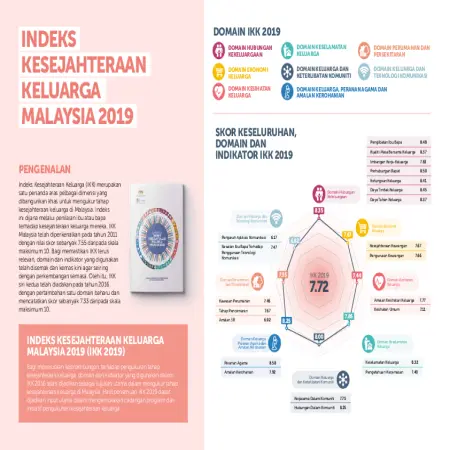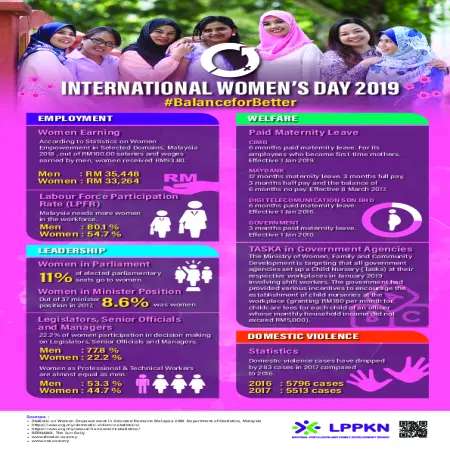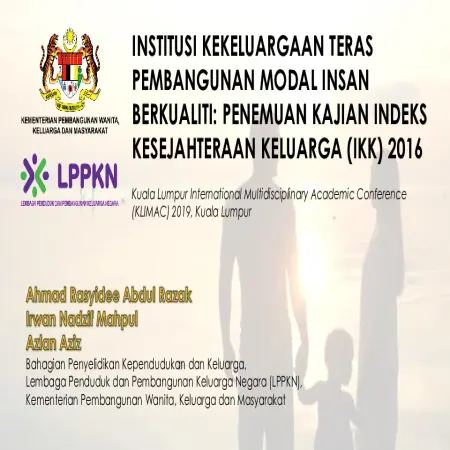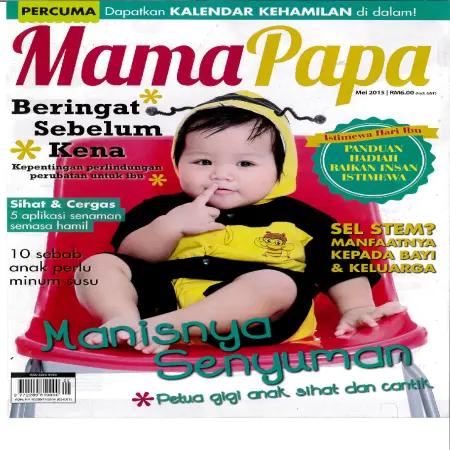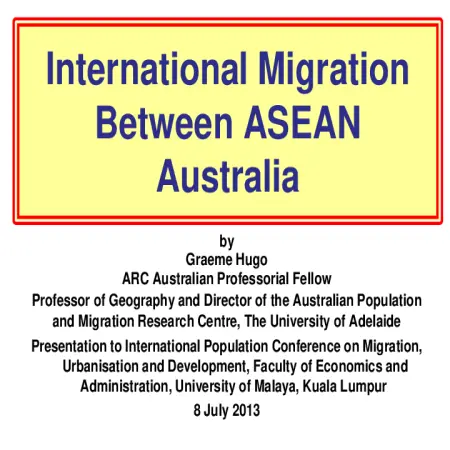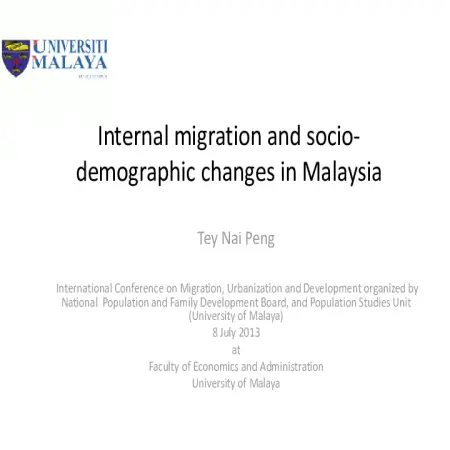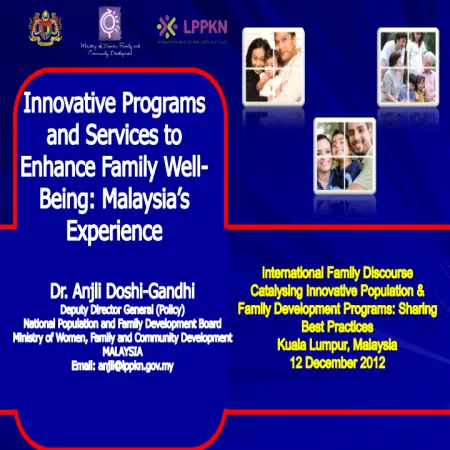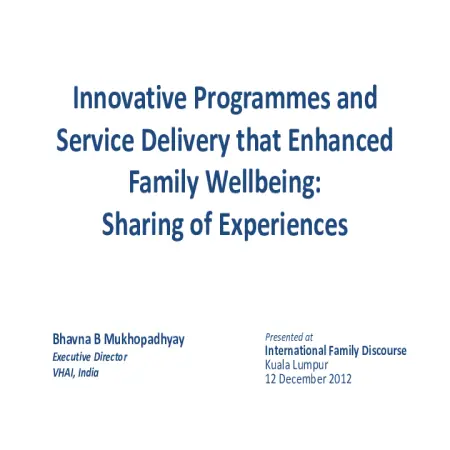Browse by Subject
Results for Search : "305 Social groups"
|
|
Impak positif daripada pandemik covid-19 kepada institusi kekeluargaan
Item Type: Article
Editor:
Year: 00/12/2021
Abstract: The world was shocked by the presence of the Covid-19 pandemic which changed the norms of human life from the usual. This effect also
felt by every family institution which is the basic group in a community. The routine in family life that has become a habit had to be changed because of it. Previous studies have found that there are various negative or positive impacts from this epidemic. This article places special emphasis on the positive impact of the Covid-19 pandemic on family institutions. The study is exploratory because it is a new issue with limited resources. The study literature is based on references obtained from reading sources related to the Covid-19 pandemic and the concept of new norms for family institutions. In addition to that, independent observation and experience are also the results of the study. The focus of the positive impact of this pandemic on family institutions is seen from a spiritual perspective, habits and attitudes. The result of this writing found that there are several lessons referring to the positive impact useful to be used as a reference or guide in the future. The concept of understanding and returning to religious teachings is the key to getting a positive impact from any form of calamity or disaster.
|
|
|
|
|
|
Impak covid-19 terhadap kelestarian sosioekonomi masyarakat pedalaman di Malaysia: kajian kes Daerah Segamat Johor
Item Type: Article
Editor:
Year: 00/12/2021
Abstract: The implementation of the Movement Control Order (MCO) by the government to control internal and cross-border movement of districts and/or states has been accepted and adapted to become the new norm in controlling the spread of infection, especially involving vulnerable community groups. But at the same time, this restriction of movement also disrupt various activities in the economic sector which is the heart of community life. Since there is a lack of specific research to find out the impact of Covid-19 on the socioeconomic sustainability and needs of the rural community, a case study and field survey was conducted invoving 20 respondents/household heads (KIR) in Felda Pemanis 1, Segamat district, Johor on 13-14 September 2021. The findings show the majority respondents are senior citizens who belong to a vulnerable and high-risk group.
|
|
|
|
|
|
Indeks Kesejahteraan Keluarga Malaysia 2019
Item Type: Infographic
Editor:
Year: 00/00/2020
Abstract: The Malaysian Family Well-Being Index is a multi -dimensional benchmark that specially developed to measure levels family well-being in Malaysia. Index is generated through maternal or paternal assessment to the well -being of their families. The Family Well-being Index 2019 score has increased to 7.72 from a maximum scale of 10 compared to 7.33 in 2016.
|
|
|
|
|
|
International Women's Day 2019 # BalanceforBetter
Item Type: Infographic
Editor:
Year: 00/00/2019
Abstract: This infographic shows statistics on women's involvement in Malaysia in areas such as employment, leadership, welfare as well as incentives provided by the government and the private sector in supporting women's involvement in the labor force.
|
|
|
|
|
|
Imbangi keluarga dan kerjaya
Item Type: Article
Editor:
Year: 00/05/2015
Abstract: Based on the Fourth Malaysian Population and Family Survey (MPFS-4), it was found that overall, mothers do more leisure activities with their children, especially children under seven years old. This study found that the percentage of parents who often spend special time with their children is higher among mothers (80.2%) than fathers (65.3%). However, the percentage of those who frequently took their children on outings was almost the same between mothers (52.2%) and fathers (52.4%).
|
|
|
|
|
|
International migration between ASEAN Australia
Item Type: Conference or Workshop Item
Editor:
Year: 00/00/2013
Abstract: International migration is an increasing influence in ASEAN. The 2013 United Nations Population Report indicates that ASEAN had the third fastest growing international migration currently of all world regions over the 2000-13 period. This presentation examines the global context in which this increase in mobility is occurring. It summarises the main elements in this increased importance of migration. It focuses then on recent developments in the migration relationship with Australia. Australian international migration data is of very high quality and allows the movement between ASEAN countries and Australia to be qualified. It detects permanent immigration and emigration as well as non-permanent moves. It is demonstrated that the migration relationship between ASEAN and Australia is emphatically an interacting one. It is a system rather than a south-north movement. The characteristics of migrants are examined and issues of brain drain addressed. The paper considers some policy dimensions of the migration relationship for development in ASEAN.
|
|
|
|
|
|
Internal migration and socio-demographic changes in Malaysia
Item Type: Conference or Workshop Item
Editor:
Year: 00/00/2013
Abstract: This paper re-examines the levels, trends and patterns of internal migration, followed by some discussions on the causes and consequences of internal migration in Malaysia in 1991 and 2000. A more up to date analysis awaits the release of migration data from the 2010 census. The focus of this paper is on inter-state and inter-regional rather than intra-state migration as more people moved across states than within state. Key questions to be addressed include the reasons for the high concentration of migration in the Klang Valley since the 1970s, migration selectivity in terms of age, education and ethnicity. The migration impact on socio-demographic changes and policy issues will also be examined.
|
|
|
|
|
|
Innovative programs and services to enhance family well-being: Malaysia's experience
Item Type: Conference or Workshop Item
Editor:
Year: 00/00/2012
Abstract: Families constantly face new pressures and challenges due to rapid Industrialisation, modernisation and globalisation. Globalization in general brings benefits to families but it also creates risks and challenges that must be anticipated and adapted to. Hence, we have to be alert and responsive to future challenges that families will face and equip them with the necessary knowledge, skills as well as provide the needed services. As family is the most fundamental and important social unit, commitments at the highest level should be sought. Family well-being in Malaysia has been affected positively or negatively by development. Currently, Malaysian families face many challenges as a consequence of the changes in its structure, the increase in the proportion of nuclear families and changing lifestyles. Adaptations will have to be made so as not to lose the family support system, such as for child care, care of the elderly and the infirmed. Hence, the 3P Approach (Public, Private and People) which involves the partnership of multiple stakeholders such as the government, civil society and CSOs in ensuring that the present and future generation is more peaceful, secure, tolerant, prosperous and sustainable is most paramount in nation building. There are various innovative initiatives that have been undertaken in strengthening the family institution such as the National Family Policy, 1Malaysia Family First (1MF1st) and 1 Malaysia Youth and Empowerment Support (1MYes) under the National Blue Ocean Strategy, Strengthening of Marriage Institution (SmartStart Pre-Marriage Program), 1 Stop Family Centre, family education programmes such as KASIH Modules, Parenting@Work, Smart Belanja@Lppkn, Lppkn@Community and counselling programmes. Realizing that the happiness of the people and wellbeing of the family is an important goal in becoming a high income country by 2020, the government is developing its own model of the United Nations World Happiness Index. Currently, Malaysia is placed 51st among 156 countries. Meanwhile, a National Family Wellbeing Index developed by the Ministry Of Women, Family and Community Development through the National Population and Family Development Board in 2011 found that the Family Wellbeing Index is 7.55 out of 10. The Family Well-Being (FWB) Index consists of seven domains; Family Functioning, Economy, Health, Safety, Community, Religion and Spirituality, and Housing and Environment. The FWB Index indicates that Malaysian families have a relatively high level of wellbeing but more still needs to be done.
|
|
|
|
|
|
Innovative programmes and service delivery that enhanced family wellbeing: sharing of experiences
Item Type: Conference or Workshop Item
Editor:
Year: 00/00/2012
Abstract: While India has been on the path of economic progress over the last decade, our health system is at crossroads today. Even though Government initiatives in public health have recorded some noteworthy successes over time, the Indian health system is ranked 118 among 191 WHO member countries on overall health performance. There are wide variations in health indicators across the States (11 states with a population of 60%, still have a TFR of over 3 whereas 6 states with 11.4% of the population have already achieved replacement levels of fertility of 2.1. Some of the flagship programmes to improve the availability of and access to quality health care, especially for those residing in rural areas, the poor, women, and children, have been National Rural Health Mission (NRHM) and Mahatama Gandhi National Rural Employment Guarantee Act (MGNREGA). This paper discusses the sharing of information on the health system in India.
|
|
|
|







